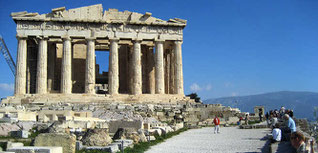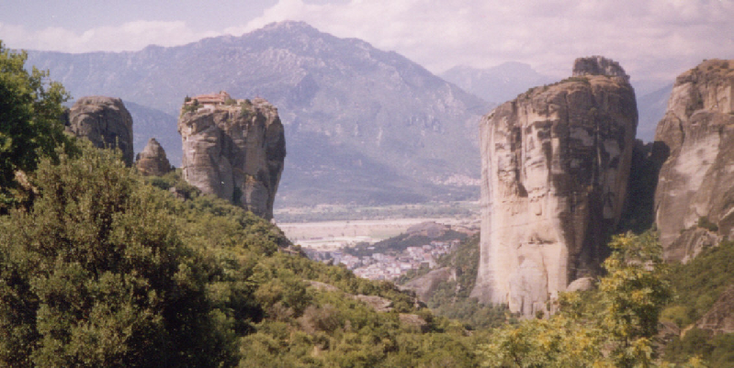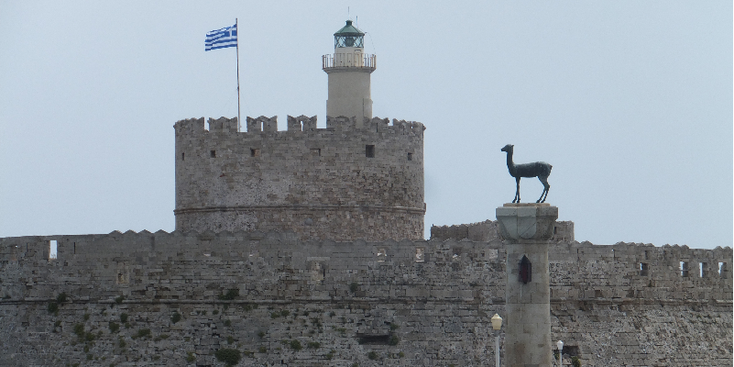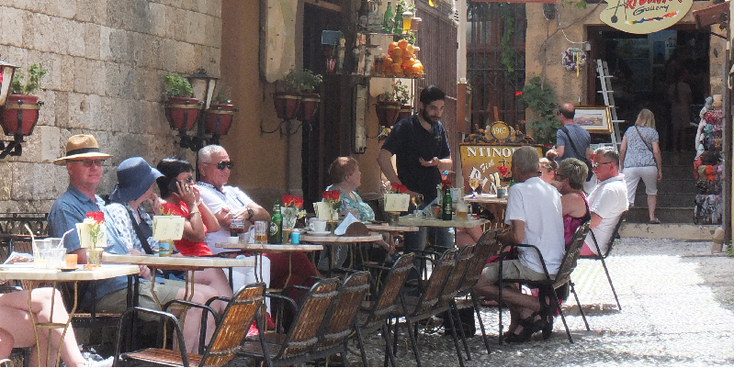GREECE

Official name : Hellenic Republic
Capital : Athens
Currency : Euro (EUR)
Language : Greek
Inhabitants : 10.700.000
Visa required : NO
introduction
The history of Greece, and especially the Greek civilization of Antiquity, takes a very special place for the understanding of the Western world. The history of ancient Greece is not limited to the rivalry between Athens and Sparta. Hundreds of cities along the shores of the Mediterranean and the Black Sea spread “Hellenism”, the way of life and the thinking of the Greeks.
Some knowledge of the Greek myths and stories should make a visit to the place far more interesting and often clarify the view of the sanctuary. Mythology gives an idea of the faith of the ancient Greeks that was very connected to nature: the gods were thanked when rain drew the fields, their anger had to be averted when a natural disaster threatened. The Greeks knew many fertility rites.
Natural forces were worshiped as gods: the sunlight as Apollo, the sea as Poseidon, agriculture and fertility as Demeter.

The role of the Greeks was very great during European history. Greece became a member of NATO and of the EU. In the 2000s, the South Europeans would join the euro and the Olympic Games "came home". But then came the financial crisis and scapegoats were sought and found.
The euro and the corrupt politicians in Greece got the blame. The actual cause can be found after the fall of the 1974 military junta. The country was stuck with a huge debt because of the large military expenses. In order to allow parts of the population to participate in the economy, the state created many public sector jobs and financed pensions and other social benefits.
Prior to the introduction of the euro, devaluation of the currency helped to finance the Greek sovereign debt. After the introduction of the euro in January 2001, this mechanism fell away. During the next 8 years, Greece was able to maintain its high level of borrowing, thanks to lower interest rates on euro government bonds, combined with a long series of strong GDP growth. Problems began to emerge when the global financial crisis peaked and affected all the world's economies in September 2008. The global financial crisis had a particularly significant negative impact on GDP growth in Greece. Two of the largest sources of revenue, tourism and shipping were hit hard by the economic downturn, with a 15% turnover decline in 2009.
On May 2, 2010, the European Commission, the European Central Bank (ECB) and the International Monetary Fund (IMF), later called the Troika, pledged a € 110,000,000,000 loan to save Greece and meet its financial needs for the period, May 2010 to June 2013. In return, the Greek state must comply with the implementation of austerity measures, structural reforms and privatization of government assets.
In 2015 there was almost a GR-exit there, but Europe managed to keep Greece (just) inside. Greece is currently tied with hands and feet to strict cuts to keep its head above water and a slight growth has been observed.

read more about Greece:
LANDEN:
EUROPA:
Albanië * België * Bosnië-Herzegovina * Bulgarije * Denemarken * Duitsland * Engeland * Estland * Finland * Frankrijk * Griekenland * Hongarije * (Noord) Ierland * Italië * Kosovo * Kroatië * Letland * Litouwen * Luxemburg * Macedonië * Malta * Montenegro * NEDERLAND * Oekraïne * Oostenrijk * Polen * Portugal * Roemenië * Rusland * Schotland * Servië * Slovenië * Slowakije * Spanje * Tsjechië * Turkije * Zweden
NOORD EN CENTRAAL-AMERIKA:
Chili * Costa Rica * Cuba * Guatemala * Mexico * Nicaragua * Panama * Verenigde Staten
ZUID-AMERIKA:
Argentinië * Bolivia * Brazilië * Colombia * Ecuador * Peru
AFRIKA:
Botswana * Burkina Faso * Egypte * Ethiopië * Ghana * Kenia * Mali * Marokko * Namibië * Oeganda * Senegal * Tanzania * Tunesië * Zuid-Afrika
MIDDEN-OOSTEN:
Iran * Israël * Jordanië * V.A.E.
AZIE:
Armenië * Cambodja * China * Filipijnen * Georgië * India * Indonesië * Japan * Kirgizië * Laos * Maleisië * Mongolië * Myanmar * Nepal * Oezbekistan * Singapore * Sri Lanka * Thailand * Vietnam
OCEANIE:
Voor meer reisfoto's kijk op www.instagram.com/cheapskatetravel.nl:
© Cheapskatetravel.nl; 2018 (all rights reserved)



